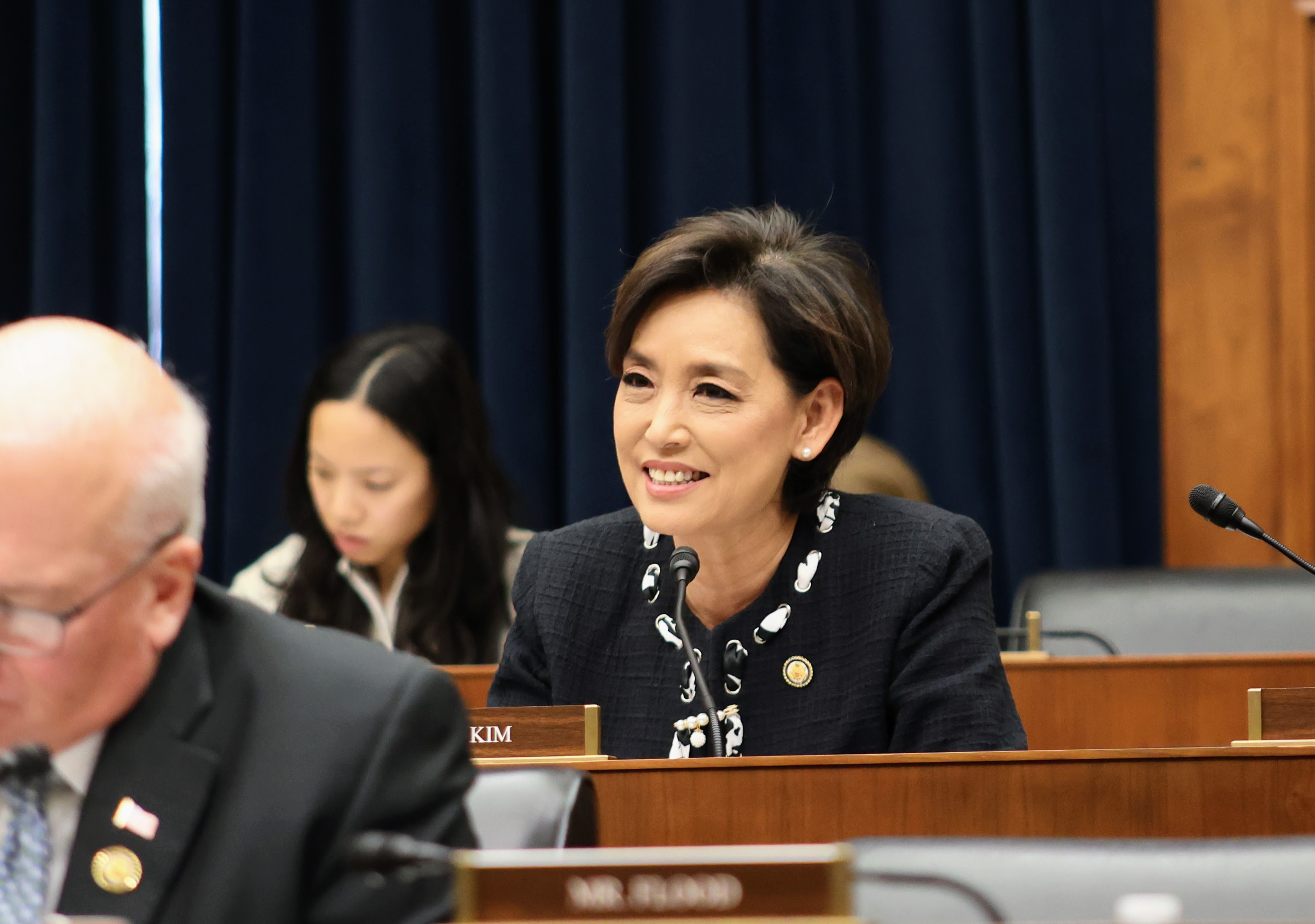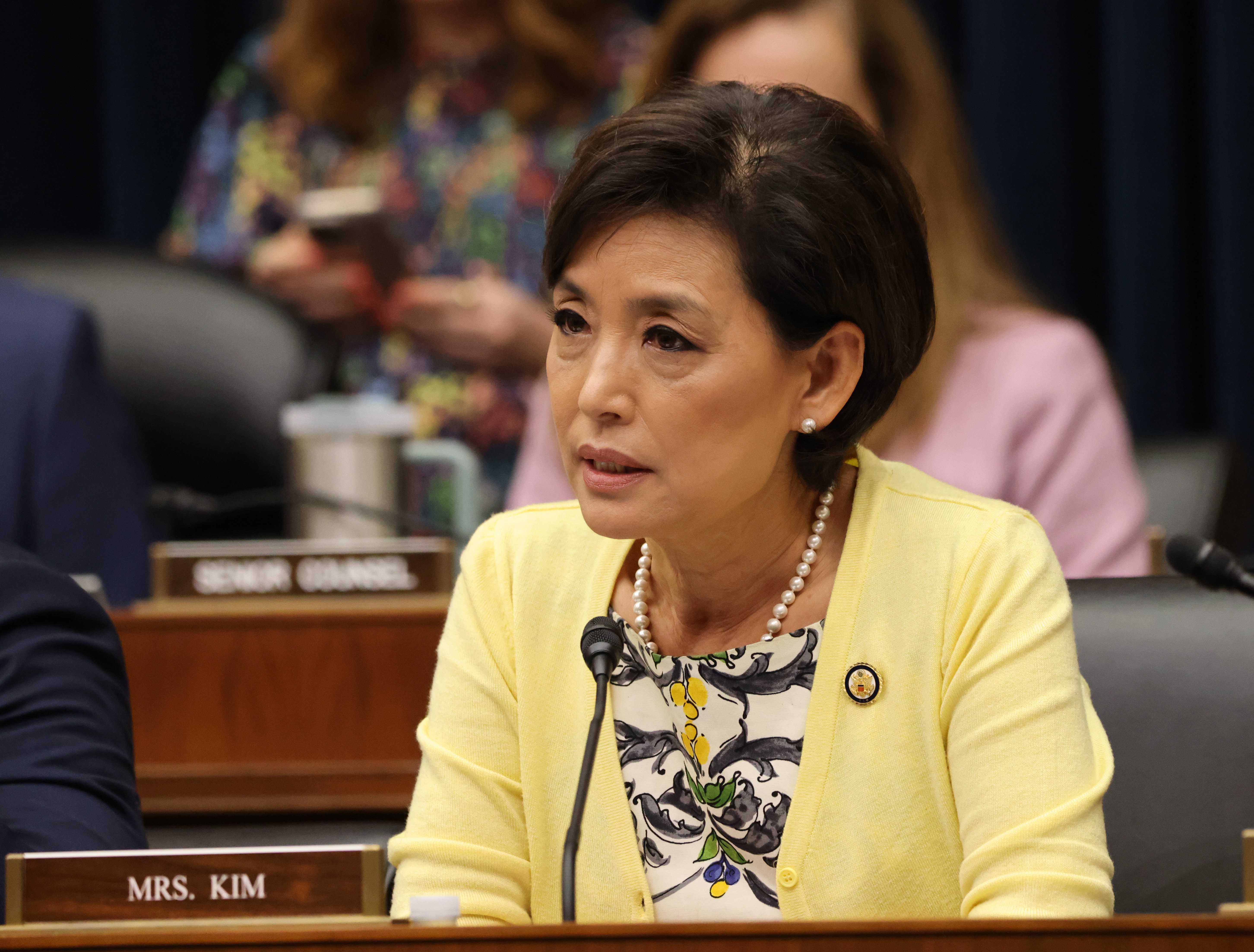EXCLUSIVE: There’s another bill out on geothermal – and we’ve got the scoop.
Rep. Young Kim, a California Republican, is introducing the Harnessing Energy at Thermal Sources Act, otherwise known as the HEATS Act, during today’s pro forma session in the House – a bill that would look to speed up the permitting process for geothermal energy.
How? The HEATS Act would amend the Geothermal Steam Act of 1970 and waive federal drilling permit requirements for geothermal wells that are on state and private lands. Operators would be exempt from federal permitting requirements – but would still be subject to state regulations. These projects would also bypass requirements under the National Environmental Policy Act of 1969, as it would not be considered a “major federal action.”
“Deploying U.S. energy innovation promotes U.S. energy independence, expands our energy portfolio, lowers costs for Americans, reduces emissions, and secures supply chains,” Rep. Kim said in a written statement to the Washington Examiner. “The HEATS Act helps us achieve these goals and is a commonsense way to accelerate renewable geothermal energy production and deployment which is a win for our economy, national security, and environment.”
Why this is important: Geothermal is subject to a more restrictive federal permitting process than oil and gas, even though the drilling and extraction process is similar. Although the energy source has been commercially used since the early 1900s, geothermal hasn’t taken off the same way oil and gas has – resulting in an industry that’s historically smaller and contained to states in the West. However, new technology and advancements could scale up its use.
How it compares with other bills: There are other geothermal bills that have been introduced in the lower chamber that are aiming to achieve the same goal. Another California Republican, Rep. Michelle Steel, has introduced a bill meant to put geothermal on the same footing as oil and gas, by amending the Energy Policy Act of 2005 to allow for a categorical exclusion for geothermal under NEPA. The bill advanced out of committee last month.
Another bill from Rep. John Curtis, the chairman of the Conservative Climate Caucus, would amend the Geothermal Steam Act of 1970 to establish a deadline for processing applications related to geothermal leasing. It would require the Department of Energy to issue authorizations for projects unless a federal court vacates the underlying lease.
Welcome to Daily on Energy, written by Washington Examiner Energy and Environment writers Breanne Deppisch (@breanne_dep) and Nancy Vu (@NancyVu99). Email bdeppisch@washingtonexaminer dot com or nancy.vu@washingtonexaminer dot com for tips, suggestions, calendar items, and anything else. If a friend sent this to you and you’d like to sign up, click here. If signing up doesn’t work, shoot us an email, and we’ll add you to our list.
BIDEN SET TO ALLOW HIGHER BLEND OF E15 GASOLINE: The Biden administration is slated to approve a request from Midwestern governors to expand year-round sales of higher percentage ethanol-based gasoline beginning in 2025—a decision likely to be met with mixed emotions from state leaders, who had pushed for the expansion but not the delayed start date.
The action, reported by Reuters, would fulfill a petition filed in 2022 by the governors of Illinois, Iowa, Minnesota, Missouri, Nebraska, Ohio, South Dakota, and Wisconsin, who had asked the administration for year-round sales of E15 gasoline. The administration is expected to issue its final decision on the ethanol-blend gasoline by the end of March.
While the start date for the temporary waiver will come into force later than the states had expected, the Biden administration has near-term options to speed up the process—including issuing a temporary waiver for the states to enable sales as needed.
At least two of the states—Wisconsin and Minnesota—are poised to be major battlegrounds in determining whether President Joe Biden will be elected to a second term.
An expansion of E15 gasoline sales would be a win for Midwestern states and the ethanol lobby, which have lobbied hard to lift restrictions on ethanol gas set under the Renewable Fuel Standard.
Proponents of ethanol gasoline argue the RFS standards overstate the environmental effects of ethanol and increase gasoline prices due to higher cost of compliance. But the move is likely to spark criticism from supporters of the more stringent standards, who say the limit on ethanol helps reduce the amount of transportation-based carbon dioxide emissions released by U.S. drivers.
Neither the White House nor the EPA immediately responded to the Washington Examiner‘s request for comment. Read more from Breanne here.
ICYMI – EPA SLATED TO RELAX PARTS OF PROPOSED RULE ON TAILPIPE EMISSIONS:
In case you missed it over the holiday weekend, the New York Times reported Saturday that the Biden administration is planning to delay its proposed standards on vehicle tailpipe emissions until after 2030.
The administration would keep the target of a 67% reduction in tailpipe emissions by 2032 from all new cars and light-duty trucks, the Times reported, citing officials familiar with the administration’s thinking. But it would relax earlier reductions on tailpipe emissions, including a 56% reduction target for 2026 and a 60% reduction target for 2030.
The current standards have sparked backlash from auto manufacturers and industry leaders, who have bashed the administration’s current targets as a “de facto battery electric vehicle mandate” and argued they are “neither reasonable nor achievable” in the current time frame. Read more on the delay here.
INDONESIAN THERMAL COAL EXPORTS REACH NEW HIGHS IN 2024: Indonesian thermal coal exports soared by 24% in the first two months of 2024, reaching an all-time high of 504.6 million tons so far in February alone, according to data from the ship tracking firm Kpler.
Indonesia could see its largest year for thermal coal exports on record for the second straight year, surpassing last year’s high of 504.6 million tons, Reuters reports.
Still, analysts note that one key driver will likely be the pace of China’s industrial sector recovery in 2024. Read more on the numbers here.
HARRIS TO ANNOUNCE $5.8B IN WATER INFRASTRUCTURE FUNDING IN PENNSYLVANIA: Vice President Kamala Harris is slated to announce $5.8 billion in water infrastructure funding during a trip to Pennsylvania today, the latest tranche of funds allocated under the Bipartisan Infrastructure Law aimed at cleaning up waterways and addressing pollution from PFAS chemicals.
While the $5.8 billion does not expressly reserve funds for replacing lead-based pipes, the money may be used for that purpose. It will also include $3.2 billion to upgrade drinking water infrastructure in general, and $2.6 billion for upgrades to sewer and stormwater infrastructure, The Hill reports.
Harris will announce the funds in Pittsburgh alongside EPA Administrator Michael Regan.




